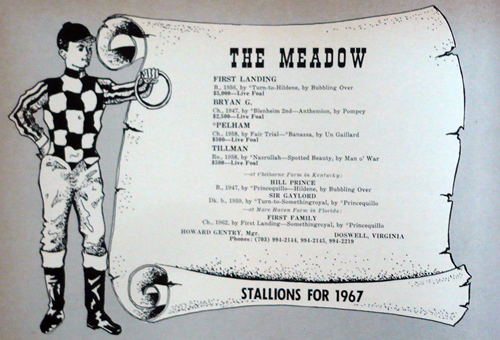Narratives
Michael Mann talks about “Luck” with the Los Angeles Times:
“To make these characters be alive, you have a sense of them intuitively and viscerally,” Mann said. “The challenge of it is obvious, but the economy of it is wonderful — if you can make it work.”
Making “the economy” work has been the director’s career. Khoi Vinh:
What’s left out from these movies is as important and beautiful as what’s included. They’re exercises in doing as much as possible with as little as possible, implying whole swaths of narrative information by allowing the audience to extrapolate events, details, backstories and subplots from only the barest hints of their presence…. Mann employs an architectural approach that establishes a plot framework but declines to fill every nook and cranny. He uses very few elements to suggest many more, and in so doing constructs a kind of environment that the audience experiences rather than a narrative account that the audience observes.
Or, as Mann tells his interviewer, discussing audience perceptions:
“It’s liberating to jump into the stream of a story and jump into the stream of a character and convey by attitude, ambience and the tone of that person — and their surroundings and how they’re reacting to those surroundings — the magic of what’s happening. When you can bring the audience into understanding and they have leapt over that little gap, and they’re getting it on their own, it’s a much more intense involvement.”
There is nothing about this show that isn’t coming together.
In a morning matinee at a downtown Boston multiplex, I watched “Secretariat” on Saturday, and as Vic Zast wrote last month in his informal review of the film, “I couldn’t wait for it to end.” I knew, going in, to expect schmaltz and historical inaccuracies. I didn’t expect to be bored.
Plenty has been written elsewhere, so I’ll only make a couple observations:
Several reviewers have noted as inaccurate an early scene in which horses are saddled in the barn area, horse laundry and manure pits in the background. I don’t believe that was an error — for a movie about the well-to-do and the well-bred, in which the final, stirring scene ostensibly takes place at one of America’s grandest tracks (and was actually filmed at one of the prettiest), “Secretariat” goes to great lengths to show Penny Chenery and the rest of the characters in rundown or rough settings when they’re on track. Paddocks are of brick and concrete, backstretches lined with tractors and sheds, tunnels dank. The racetrack visuals in “Secretariat,” minus those of the Churchill Downs clubhouse and Kentucky Derby winner’s circle, overwhelmingly create an impression of the track as primarily a working class milieu, bolstering the film’s portrayal of Chenery as a scrappy everywoman.
I’ve been trying to figure out what exactly wasn’t quite right about the racing scenes — other than the gimmicky angles and strange lack of energy — and think it has something to do with the sense of smallness that pervaded the movie. Everything about the story — the low stakes, the settings, even Secretariat — came off as minor and incidental. Nothing was ever truly at risk.
I did appreciate one touch of authenticity. When Lucien Laurin returns to his car after meeting Chenery for the first time, he pulls from his trunk a book and flips to an ad for The Meadow. He’s looking at the “Blood-Horse Gold Anniversary Edition,” published in 1967; the ad appears on page 488.

10/12/10 Addendum: Bill Doolittle nails one thing the movie did well: “The movie isn’t just true to the tale, it’s true to the turf, getting just right the special dynamic that exists between the people of horse racing — the trainers and owners and jockeys and fans — and the horses.”
10/15/10 Addendum: But Steve Davidowitz expresses more of my feeling re: the movie, days after viewing: “At the bottom line, those of us who love racing for the uniqueness of its champion horses and for its beautiful venues and for the sheer pleasure of playing the best game man has ever invented, will have to swallow down hard to go with the flow of this distorted, over hyped waste of a great cinematic opportunity.”
Andrew O’Herir enjoyed “Secretariat,” but that:
… doesn’t stop me from believing that in its totality “Secretariat” is a work of creepy, half-hilarious master-race propaganda almost worthy of Leni Riefenstahl, and all the more effective because it presents as a family-friendly yarn about a nice lady and her horse.
His review drew a reply from Roger Ebert, who gave “Secretariat” four stars:
I myself have written insane reviews. It happens.
O’Herir’s political reading is outlandish, Ebert’s lengthy response indignant. And personal? The critic is a great friend of Secretariat biographer Bill Nack.
10/10/10 Update: O’Herir responds. He was being intentionally outrageous!
Copyright © 2000-2023 by Jessica Chapel. All rights reserved.